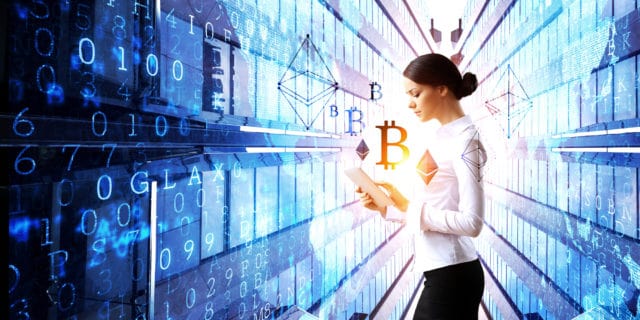To make Wealthtender free for readers, we earn money from advertisers, including financial professionals and firms that pay to be featured. This creates a conflict of interest when we favor their promotion over others. Read our editorial policy and terms of service to learn more. Wealthtender is not a client of these financial services providers.
➡️ Find a Local Advisor | 🎯 Find a Specialist Advisor

Real estate has always been categorically classified as a good investment because it is backed by a tangible asset and it appreciates in value over time. It is no different in the metaverse where the market for virtual real estate is exploding.
As specialized website NFTEvening puts it, you can build 3D environments, create avatars, or showcase a range of digital content which you can monetize—the possibilities are endless once you own virtual real estate! Once you are in the virtual world, you can walk around wherever you want, or use the map to teleport to a specific location.
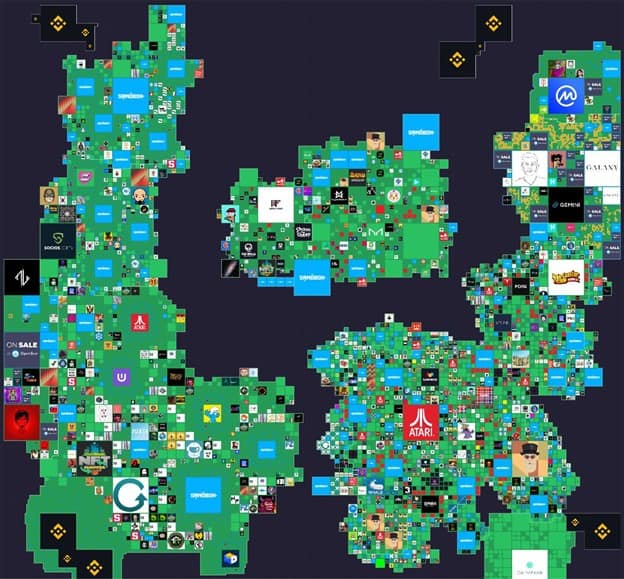
Essentially, once you buy virtual real estate, you can use it to host applications like games or gambling, advertising, or to host gaming communities, among others. For any application you build, you can charge entry fees. Otherwise, you can rent or sell the plot to developers and content creators who want to build on it. Additionally, you can showcase and sell products such as digital collectibles.
Today we’ll explore the leading platforms and projects that let you maximize the benefits of owning virtual real estate on the Metaverse.
Decentraland
Decentraland is a completely decentralized virtual world where you can buy, build, and sell digital real estate, artworks, or NFTs. You can do all this by playing games and interacting with various activities in the virtual world!
Decentraland is governed by its users via a decentralized autonomous organization called the Decentraland DAO. The metaverse has two native tokens – MANA and LAND.
MANA is Decentraland’s cryptocurrency and has a fixed supply. As it’s an ERC-20 token (fungible token), it can be bought and traded on crypto exchanges like Binance and Huobi Global or even “stacked” on DEX (decentralized exchange) like Uniswap or Sushiswap. In the metaverse, it can be used to pay for LAND, avatar, accessories, collectibles, or gaming, and more.
Meanwhile, LAND is a non-fungible, transferrable, scarce digital asset stored in an Ethereum smart contract,” notes the metaverse. Decentraland is made up of 90,601 parcels of LAND, which are 16 x 16 meters in size. Each parcel is an NFT and is identified by its location/coordinates in the virtual world. It also contains information about its owner. Furthermore, two or more adjacent parcels make an Estate.
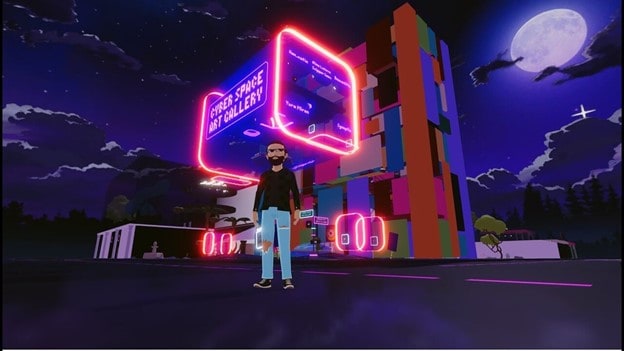
Additionally, each parcel varies in color. The light grey lines, for instance, are roads and cannot be bought. Similarly, the nine green areas are plazas owned by the Decentraland community, whereas the grey lands are those that are owned but are not available for sale. As opposed, the light blue colored lands are available for sale. Lands closer to the Genesis Plaza (the plaza at the center) or popular districts are more expensive.
You can buy parcels from NFT marketplaces like Opensea or straight from Decentraland’s marketplace. These come at quite a hefty price. In June, for instance, 259 parcels were sold for a whopping $913,228. This is the most expensive LAND sold in Decentraland.
Once you join Decentraland, there are numerous ways to make money. Like in the real world, real estate has been gaining momentum in the virtual world as well. With LAND being a limited asset, many believe its value to increase over time. Another way you can earn big is by playing a range of casino games or play-to-earn games. For example, in Decentral Games’ virtual casino, you can earn $DG tokens in a number of ways such as affiliate bonuses or governance rewards.
Furthermore, the metaverse is creating real-life employment opportunities. Tominoya Casino, for instance, has hired at least 20 part-time greeters and a manager.
Since it opened to the public over a year ago, Decentraland has grown in leaps and bounds. In the last couple of months, it has become the go-to place to purchase virtual lands and many other NFTs. If Decentraland leads the market, MANA’s price will also increase, leading to higher ROI for investors. It is important to note that Decentraland is more than just a video game. Instead, it’s a testament to the many possibilities of decentralization. If you can purchase virtual real estate and set up shop on the metaverse, there may not be a better way for you to reap the benefits of decentralization.
In fact, some early virtual land investors who bought in early are now selling to companies. Atari, ahead of its plans to open its own blockchain-based world, has licensed a retro arcade within Decentraland and is due to open a casino, while an area called “Crypto Valley” is home to various crypto companies.
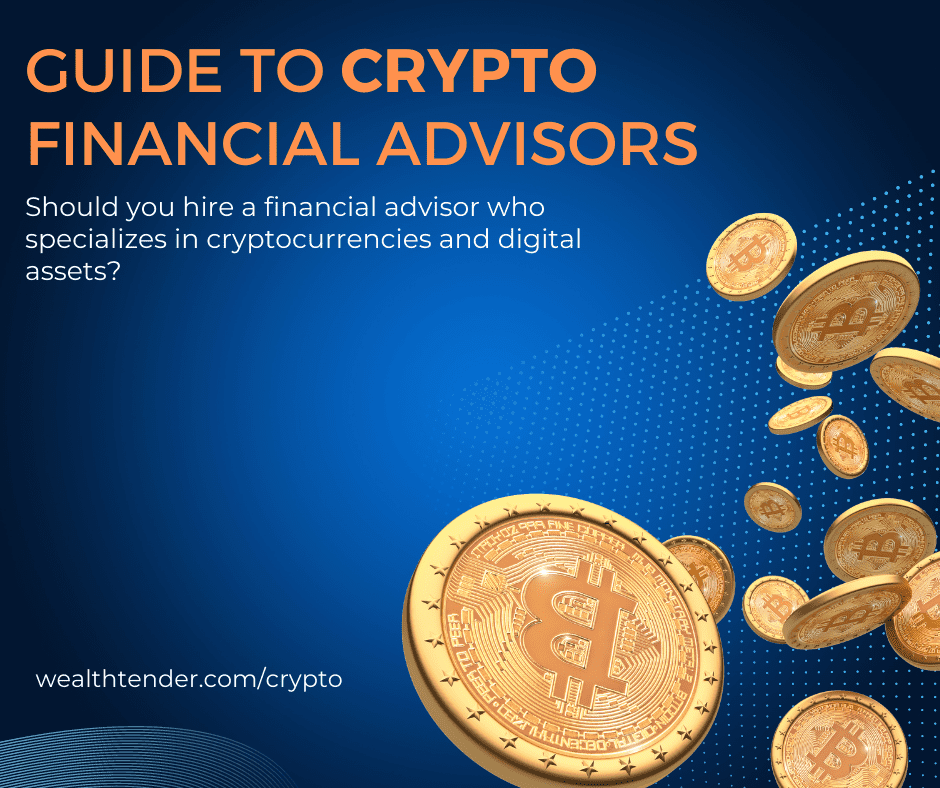
SuperWorld
SuperWorld is an NFT startup that sells virtual real estate in the Metaverse. Basically, it allows users to own real estate assets like a house, building, and or famous landmark backed by a blockchain transaction.
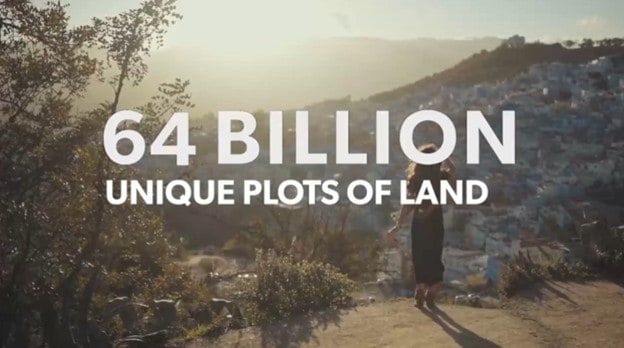
Browsing properties on SuperWorld feels a lot like searching for an actual home on Zillow or Redfin. You navigate a map provided by OpenStreetMap, and each unique parcel is clickable. You can use filters to select specific parcels, see their selling price, and purchase them with Ethereum’s ether cryptocurrency. Once you own a property, you can sell it to other people or businesses, ideally at a markup.
In this regard, SuperWorld mirrors the business model of the real estate industry. NFT holders can monetize their virtual property by letting companies advertise on the land or even sell the land to them. They can also use the augmented reality application in the platform (still in beta) to put different artworks and creations in their land. Overall, a landowner has full discretion on their virtual property.
Just like in any virtual real estate platform, the limitation of purchasing a virtual property on SuperWorld is that it doesn’t give you any ownership interest in the real-life property it’s connected to. For example, owning the Empire State Building doesn’t have anything to do with the real landmark.
Essentially, buying virtual real estate on the platform means that you’re bunking on the appreciation of virtual property and SuperWorld. If the platform becomes the dominant playing for buying and selling virtual real estate, early believers would be rewarded.
The Sandbox
The Sandbox is a blockchain-based Metaverse built on Ethereum. Here, players can create their own items, mint them as NFTs then eventually monetize. One specific aspect of the game that has been smashing records and attracting a string of celebrities and creators is the Marketplace. With LAND, you can buy a property that you can further merge and get ESTATE tokens.
The primary function of LANDs is to host and play experiences upon them, such as games, dioramas, galleries, social hubs, and so on, which can be monetized by the owner as a source of income. They can also be used to host contests and events. These experiences can be created using The Sandbox’s Game Maker software.
In addition, owning LAND will also give you a voice in the governance of The Sandbox metaverse. LAND owners and $SAND token holders will be the voice of The Sandbox and will be involved in determining and governing the future of the platform via a decentralized autonomous organization (DAO).

Some LANDs on The Sandbox are owned by partners, such as Square Enix, Atari, Rollercoaster Tycoon, Binance, Smurfs, Deadmau5, and so on. The proximity of a LAND owner’s LAND to these major partners, and other key positions, will play a role in the gameplay, visitor counts, economy, and visibility of the games built on those LANDs.
Hip-hop legend Snoop Dogg built his private mansion to host parties and present his impressive NFT collection on the platform. The news comes shortly after the artist’s shocking announcement that he is, in fact, Twitter avid collector Cozomo di’ Medici.
Now, Snoop Dogg has decided to entertain his fans virtually by recreating his pool mansion. Of course, the event will bring along two premium land sales on The SandBox: one on September 30th, and the second one on November 4th. Each piece of premium land will hold NFTs featuring various Snoop Dogg versions. Accordingly, each NFT will represent an iconic phase of the hip-hop star’s musical career. What’s more, the new collection will also include several versions of Snoop Dogg’s dog and exclusive vehicles to ride within the metaverse.
Opportunities in Virtual Real Estate Assets
Metaverse enthusiasts compare the rush to buy virtual land to the scramble for domain names in the early days of the internet. There are currently a few thousand unique landowners on each of the main blockchain-based platforms listed above. The theory is that as more people congregate in these environments, plots of land in central locations will be highly sought-after because of the amount of visitor traffic. All of the virtual land and these virtual spaces are basically real estate on which experiences will start to center, on which attention will start to focus.
If you have an interest in adding digital assets to your portfolio, consider these tips and questions to ask a financial advisor to learn if they understand the opportunities and risks of investing in cryptocurrencies to help you make more informed decisions with your money.
Are you ready to enjoy life more with less money stress?
Sign up to receive weekly insights from Wealthtender with useful money tips and fresh ideas to help you achieve your financial goals.

About the Author
Princess May Amaranto
Princess May Amaranto is a brand builder for blockchain projects. She enjoys cycling and following Formula 1 races on weekends.
To make Wealthtender free for readers, we earn money from advertisers, including financial professionals and firms that pay to be featured. This creates a conflict of interest when we favor their promotion over others. Read our editorial policy and terms of service to learn more. Wealthtender is not a client of these financial services providers.
➡️ Find a Local Advisor | 🎯 Find a Specialist Advisor


